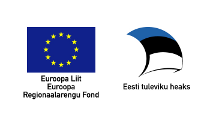Elisa warns against phishing calls made on behalf of Elisa
Text Mark Taylor Photo Onur Binay / Unsplash
During a new wave of cyberattacks, Elisa clients have started to receive phishing calls. The scammers who speak Russian are trying to get personal or financial information.
According to Mai Kraft, Elisa’s information security manager, the company was informed about cases where clients received phishing calls from people claiming to be Elisa employees. The caller advises the person to download and install a remote access program to their device. It is reported that the callers speak in Russian.
Kraft stressed that such calls should be treated with special caution. “These are fraudulent calls, the purpose of which is to gain access to the users’ computers and thus encourage them to enter a fake Elisa self-service environment using an ID card, Mobile ID or Smart ID,” said Elisa’s information security manager. “When a person enters their data to enter this system, an environment opens in the background and criminals get access to the client’s data in it, and can also perform actions on behalf of the client,” she explained.
Elisa urges clients to be vigilant and report any suspicious activity via e-mail to security@elisa.ee. Elisa also asks people to contact if they have become a victim of a fraudulent call.
“After learning about a client who has suffered from a phishing call, we will definitely analyse the incident and try to understand what damage was caused to the client, and we will continue to closely monitor this problem and take all necessary measures to ensure the safety of our clients,” said Kraft.
“We would like to remind everyone to be careful when receiving unexpected calls or messages, especially if an unknown person asks for personal or financial information or offers to download and install a program,” she added.
To protect yourself or your company from possible fraud, it is important to always be cautious about unexpected calls and messages. Here are some tips that will help to protect yourself from scammers:
- Do not disclose personal or financial information by phone, in messages and on suspicious websites.
- Beware of calls or messages stating that you have an outstanding debt or a request to immediately pay for something.
- Be skeptical of unwanted messages and calls with a request to provide personal information or with an offer to download and install a program or visit a website.
- Before undertaking any actions, study and verify the legitimacy of the corresponding company or organisation.
To learn more about this and similar topicsElisa Fraud Fraudulent Call Phising Phising Call Scam Scam Call










